Update: 2:10pm, Tue 15 June 2021:I have been contacted by Millie from Andrew Wilkie's Hobart Office. Millie advised me that last year, Andrew Wilkie put on notice a motion a Private Members' Motion in support of Julian Assange.This motion was still not been put. The attached PDF of the motion, and the text of the e-mail from Millie, are included below. -JS
Further Update:2:30pm, Tue 15 June 2021: As I was updating this article, I received an email from Julian Hill, another member of the Support Group. He told me that he has put on notice another motion in support of Julian Assange, and has asked for debate time. I will post the full email shortly.
Update 12:40pm, Thu 3 June 2021: After I had posted this finished article at 4:50AM this morning, I realised that the most recent example I had cited in the Appendix below was dated 26 February 2020 - more than 12 months old! However, my perusal, just now, of more recent documents confirm to me my belief which I stated in the article, that is that the failure by any of the "Bring Home Julian Assange" parliamentary support to formally move a motion in support of Julian Assange, either in the House of Representatives or in the Senate, has allowed both Prime Minister Scott Morrison and Foreign Minister Marise Payne to avoid effective scrutiny of their failure to support Julian Assange. Those Hansard pages are Assange, Mr Julian Paul (25/2/2021) by Tony Zappia MP, Committee on 25/03/2021 by Senator Rex Patrick, Mr Julian Assange (25/2/2021) by Senator Whish-Wilson, Assange, Mr Julian Paul (2/2/2021) by Senator Peter Whish-Wilson, Iraq War, Mr Julian Assange (16/2/2021) by Senator Peter Whish-Wilson. I will append copies of the above pages below in another Appendix shortly.
15 June: Parliamentary discussion limited by collusion between Liberal/National Government & Labor Opposition?
For the past 12 months at least, there has been little effective scrutiny of the abandonment of Julian Assange, and worse, by the Australian government in either the House of Representatives or the Senate. This is because, by the seeming choice of both the Government and the Labor Opposition, those who want to raise the issue of Julian Assange, who are members of the Cross-bench and even those who are members of the governing Liberal and National Parties or the Opposition Labor Party, have only been able to raise this issue through a Private Members Motion (PMM - see below for explanation) which requires a lot of effort on the part of that member and which can still be refused by the Selection Committee. Consequently those who want to speak for Julian Assange on the floor of Parliament can do it in two other ways:
- Putting a question to a government minister. As is shown in Greens' Senator Janet Rice's questioning of Foreign Minister Marise Payne on 25 March, the amount of time allowed for the question, the Minister's
obfuscation response and discussion about that response, seems to be only two minutes - usually only a fraction of the time necessary to properly discuss most aspects of this issue.
- Tabling a petition as shown in Australia's Parliament must act to end the illegal imprisonment of Julian Assange (8/6/21). On this occasion, after Labor member Peter Khalil presented a petition for Julian Assange and spoke for 1 minute and 19 seconds, no member of the Government took the trouble to respond.
Clearly, discussion of such a crucial issue as Julian Assange warrants much more time than the Australian parliamentary duopoly has , so far allowed to occur.
Not realising these complexities, I previously sent to members of the Group two proposals for motions to be put to Parliament. They can be found in my article Australia's "Bring Julian Assange Home" group must act now on the floor of our national Parliament (31/5/2021). Had either of those motions ever been put, that would have, firstly, given any of the members of the "Bring Julian Assange Home" support group much more time to put his/her case than he/she has been able to so far. Secondly, those hostile to Julian Assange would have been left with no choice but to put to Parliament whatever 'case' they had against Julian Assange. Simply ignoring the issue, as they usually had previously, would have only made them look worse. However, whatever case they would have put would have been quickly torn to shreds in the course the debate. Whilst it is unlikely that this motion would have been carried, every member of whatever House in which that motion was put would be left with no choice but to take a stand one way or the other or to abstain. In these circumstances abstention would not have reflected much more favourably on that Parliamentarian than voting against Julian Assange.
Such a comprehensive debate on the floor of the Australian Parliament would be a massive addition to the arsenal of those fighting for Julian Assange's freedom across the globe.
A search (with the search terms "Julian Assange" - quote marks omitted) through the Hansard of Australia's 46th Parliament, elected on 18 May 2019, reveals a number of powerful speeches in support of Julian Assange by members and supporters of the "Bring Julian Assange Home" group from the floors of both the the House of Representatives and the Senate. Some of these are included below in the Appendix. However, that search also showed that there was surprising little response from members of the Government of Scott Morrison of whom these speeches are so critical. Most of the speeches were not responded to at all whilst, on the few occasions that they did respond, such as in Question Time, neither Prime Minister Scott Morrison nor Foreign Minister Marise Payne bothered to make more than a token pretence at rebutting the substance of these speeches.
15 June: How parliamentary rules allow the major parties to suppress discussion they don't want
The reason is that the rules of Parliament only allow members, acting for either the governing Coalition or the Opposition Labor Party, to easily put motions to be properly debated in either of the two houses. Cross-benchers, of which Andrew Wilkie and most other members of the Group are, are required to go through a complicated process to have a Private Members' Motion (PMM) approved by the Selection Committee before that PMM can even be put to either the House of Representatives or the Senate. Then a PMM can only be put on Mondays, so presumably, in the current sitting week consisting of only Tuesday 15 June, Wednesday and Wednesday a PMM cannot be put. Once a PMM is put, only three speakers are allowed to speak for the motion and three are allowed to speak against speakers and each is only allowed to speak for 5 minutes. The total time allowed for discussion is 30 minutes. As I have written in one of the above update above, Labor MP Julian Hill has submitted a motion to be put this coming Monday 21 June. It still remains to be seen if this motion is put.
Why have so few in Parliament had anything to say about Julian Assange, so far?
So why why have they shown so so little concern for "Bring Julian Assange Home" Parliamentary group? The fact that that group has not yet even put one motion to Parliament in support of Julian Assange seems, to me, to be a likely reason. (Update, 15 June 2021: The reason why there has been so little discussion is because, as shown above, the rules make it very hard for those, mostly Cross-bench members, who are not acting on behalf of either the Government or the Opposition to put any motion not approved of by the major parties to the floor of Parliament. The reason is not, as I had previously wrongly assumed and implied, that members of that members of the "Bring Julian Assange Home" Parliamentary Support Group were willfully failing to put any motion in support of Julian Assange to Parliament.)
The overwhelming majority of Parliamentarians, so far, have said nothing one way or the other on Julian Assange. (Update, 15 June 2021: See previous update.They have clearly avoided coming out openly supportive of the government's abandonment of Julian Assange, knowing that such a stand would most likely cost them support from their electors.
Putting to Parliament a motion requiring the government to act to end the British government's illegal imprisonment of Julian Assange would require this silent majority to make a choice: Either pay the cost of being seen to support the abandonment of Julian Assange by both the Morrison government and the Labor Opposition, or come out openly in opposition to that crooked political consensus.
A motion in support of Julian Assange would massively invigorate debate in Parliament
Whichever choice each member of this currently silent majority chooses to take - support Julian Assange, support the Australian government's collusion with the U.S. against Julian Assange, or abstention - political survival will necessitate that he/she will have see that his/her decision is argued for very forcefully on the floors of Parliament.
The indifference, so far, shown to arguments put by the "Bring Julian Assange Home" group, as shown in the Hansard excerpts included below, will quickly change into a vigorous attempt by the current Government and Opposition leaders to defend their failure to support Julian Assange on the floors of Parliament - an argument they stand no hope of winning in the eyes of most Australian voters, in my opinion.
Below, within the Appendix, Senator Peter Whish-Wilson stated on 13 February 2020 that he intended to put the next day a motion in support of Julian Assange. Unfortunately he never put this motion. (Update, 15 June 2021: See above section, "How parliamentary rules allow the major parties to suppress discussion they don't want".) Had he done so, it would now be much easier now to hold to account all those who have betrayed Julian Assange, and remove them from office, at the next Federal election.
However, it is still not too late. The Lower House is meeting later today (Thursday) and there is still time to contact the different members of the "Bring Julian Assange Home" group who are listed in my previous article, Australia's "Bring Julian Assange Home" Group must act now on the floor of our national Parliament (Update, 15 June 2021: I have got supportive feedback from both Andrew Wilkie's office and from Julian Hill. I am now much more aware of the difficulties they face. See above section "How parliamentary rules allow the major parties to suppress discussion they don't want".) and tell each one of them that you would like him/her to put to Parliament today the following proposed motion from that article :
This Parliament finds it unacceptable that Australian journalist Julian Assange, who is not guilty of any crime, continues to be held in London's Belmarsh prison in solitary confinement for 23 hours every day, whilst those who started the 2003 Iraq war have yet to be held to account for this crime against humanity.
Accordingly this Parliament calls upon the British government to immediately expedite, and in a more transparent fashion than previously, all outstanding legal matters concerning Julian Assange including his own appeal against his continued imprisonment.
Should the British government fail to do so, this Parliament instructs Prime Minister Scott Morrison and Foreign Minister Marise Payne, as a matter of urgency, to raise this at the United Nations and at the International Criminal Court.
(Update, 15 June 2021: Last year, Andrew Wilkie submitted a motion to the Selection Committee, which was never put. Right now a Private Member's Motion (PMM) has been submitted to the Select Committee by Julian Hill MP (Labor). Hopefully that PMM will be debated this coming Monday.)
Appendix: Australian Federal Parliamentarians speak up for Julian Assange
Mr WILKIE (Clark) (16:35): On Saturday, I'll fly out for London, at my own expense, to visit Julian Assange in Belmarsh Prison. My aim is to check on his welfare and to assure him that a great many people, especially here in Australia, are rightly concerned he is being treated unjustly.
A lot has been said and written about Julian Assange, and there's a broad range of views about the man. But the substantive matter here is quite simply that he's being persecuted for publishing information that was in the public interest, including hard evidence of US war crimes. That the perpetrator of those crimes, America, is now seeking to extradite Mr Assange to face 17 counts of espionage and one of hacking is unjust in the extreme and, arguably, illegal under British law. If the extradition goes ahead, not only would Mr Assange face life in a US prison but the precedent would be set for all Australians—and particularly for journalists—that they are at risk of extradition to any country they offend.
Last week, the member for Dawson and I were presented with the Free Julian Assange petition. It contains nearly 300,000 names and is a powerful document, one that mustn't be ignored by the Australian government. I now seek leave to table this document for consideration by the Petitions Committee.
Leave granted.
I table the petition.
Senator WHISH-WILSON (Tasmania) (19:59): I rise to make some remarks about Julian Assange. This Australian journalist faces 175 years—that is, death—in a US jail. And for what? For publishing truthful information in 2010 that embarrassed the US government about their wars in Iraq and Afghanistan, and what they thought they could get away with in Guantanamo Bay. Over a thousand journalists from 97 countries have signed a very substantive and detailed statement as to why they support this fellow journalist. Their statement ends:
Dangerous times call for fearless journalism.
I quite agree, and I seek to table this statement.
I'm a proud member of the Bring Assange Home parliamentary group that is working in this building, in Australia's federal parliament, across party lines. It is part of a rising tide of public opinion across the world calling for Assange to walk from Belmarsh prison a free man and to return home. I'm also proud that the Greens have been consistently arguing in this place for over 10 years now for high-level political intervention by our government. I would especially like to acknowledge our former senator Scott Ludlam, and also Felicity Ruby, who have both worked in this building for many years.
In the cases of David Hicks and James Ricketson, the Australian government intervened to bring these Australians home. The same is now needed for Julian Assange. Last week, the parliamentary group was presented with a growing petition, now 270,000 signatures strong and which I understand was tabled in the House today, calling for Assange's freedom. Doctors from around the world have appealed for his release, aghast at the state of his health. Several weeks ago, our foreign minister received a letter from a hundred doctors, stating that if Assange dies then they will want to know what she did to prevent his death. The United Nations Special Rapporteur on torture has warned that Assange is being denied legal rights and is being subjected to psychological torture that could cost him his life.
There is some good news for Julian Assange, if we can call it that. Thanks to Belmarsh prisoners organising inside the prison, and also pressure from the outside, he is now allowed to mix with other prisoners. That means that corridors will no longer be cleared when he walks through and he will no longer be confined to a cell for 22 hours a day alone in the hospital wing but will be able to speak with other human beings.
At a court hearing on 23 January, Assange's lawyers complained of inadequate access to their client in Belmarsh maximum-security prison to properly prepare his case. Edward Fitzgerald QC said:
We've had great difficulties in getting into Belmarsh to take instructions from Mr Assange and to discuss the evidence with him. We simply cannot get in as we require to see Mr Assange and to take his instruction.
Given the complexity of the case and the life sentence it may impose, it is utterly absurd that his lawyers' visits are so difficult and that he doesn't have access to materials to prepare his defence properly. Surely our government could and should intervene on these matters. I call on them to do so as a matter of urgency.
The judge has now allowed for an extension of the trial, with the case starting for one week on 24 February 2020 and resuming again on 18 May for three weeks. One of the co-chairs of the Bring Assange Home parliamentary group will visit Assange in Belmarsh prison next week, and I look forward to Mr Andrew Wilkie, a fellow Tasmanian, taking the solidarity and support of parliamentarians and Australians directly to this Australian citizen.
The UK extradition treaty does not allow for extradition on political grounds, and of course this case is political. Julian Assange is a political prisoner, and he is potentially about to be extradited to our so-called close friend and ally the United States. Australia is abrogating its responsibility to an Australian citizen and its own sovereignty by allowing Assange's human and legal rights to be violated in accepting the application of domestic US law to an Australian citizen. Journalism is not espionage; bring Assange home. (Time expired)
Senator Whish-Wilson to move on the next day of sitting:
That the Senate—
(a) notes with deep concern that:
(i) Mr Julian Assange, Australian citizen, and founder and publisher of Wikileaks, is currently detained in Belmarsh high security prison in the United Kingdom (UK),
(ii) Mr Assange faces extradition to the United States (US) under the Espionage Act and 175 years in prison for his part in the publication of evidence of war crimes, and
(iii) Mr Assange's physical and mental health in prison is significantly deteriorating;
(b) calls on the Australian Government to publicly make it clear to the US and UK Governments that it opposes Mr Assange's extradition; and
(c) sends this resolution to the House of Representatives for concurrence.
Assange, Mr Julian - Mr George Christensen, 24 Feb 2020
Mr CHRISTENSEN (Dawson) (13:47): As you know, I'm a conservative, and as a conservative I support free speech and press freedom. That's why I went with the member for Clark over to the UK last week to visit Australian journalist and publisher Julian Assange, who's detained in HM Prison Belmarsh in England. He's self-described his state of health as 'not good'. It was clear that he was disoriented, which was obviously the result of prolonged isolation, because he has been in jail and, before that, in an Ecuadorian embassy. Why? Because the US is seeking to extradite him on apparent allegations that he was involved in espionage and conspiracy to hack.
These allegations amount to WikiLeaks calling for information from whistleblowers and then receiving and publishing such information. Well, that's not espionage and that's not conspiracy to hack; that's journalism. Is he a journalist? I'd say yes, and probably more pure than most, but does it matter? Of course not. He's a publisher at the very least, and it shouldn't be a crime to publish material that's in the public interest. In my books, he's actually a hero for exposing war crimes. Whether you think he's a hero or whether you think he's a ratbag, again, it doesn't matter. If he's a ratbag, he's our ratbag, and he should be brought home. No Australian should be facing a situation where a foreign court is deciding whether they should be sent to another foreign country to face trial for simply publishing the truth. My message to both the US and the UK is: bring Julian Assange home now.
Assange, Mr Julian - Senator Peter Whish-Wilson and Senator Katy Gallagher, 24 Feb 2020
Senator WHISH-WILSON (Tasmania) (15:57): I ask that general business notice of motion No. 464, standing in my name for today, relating to Mr Julian Assange, be taken as a formal motion.
The DEPUTY PRESIDENT: Is there any objection to that motion being taken as formal? There's an objection.
In lieu of suspending standing orders, I seek leave to make a short statement.
The DEPUTY PRESIDENT: Leave is granted for one minute.
Photo of MP Senator WHISH-WILSON: This is not the time for this parliament and for politicians to be silent—silent on the extradition of an Australian citizen and journalist to the United States, whose war crimes were exposed. This is not the time to be silent on the criminalising of journalistic activity. This is not the time to be silent on such a dangerous precedent being set—where our friend and ally the United States say about a political prisoner, Mr Julian Assange: 'We want this guy. We want to throw him in the dock'—and give him a virtual life sentence, 175 years—'for exposing our war crimes.' This is the time to be speaking out on an egregious and abusive use of power by one of the most important countries on this planet. (Time expired)
Senator GALLAGHER (Australian Capital Territory—Manager of Opposition Business in the Senate) (15:58): I also seek leave to make a short statement.
The DEPUTY PRESIDENT: Leave is granted for one minute.
Photo of MP Senator GALLAGHER: Like any Australian citizen facing legal difficulties overseas, Mr Assange is entitled to consular assistance. The opposition understands this assistance has been offered by the Australian High Commission in London. The opposition calls on the UK government to ensure that all proper legal process and procedural fairness is afforded to Mr Assange in proceedings now before the UK courts. Given Mr Assange is an Australian citizen, in advance of any extradition request being granted we expect that the Australian government work with the UK government to seek a guarantee from the United States that the death penalty would not be imposed.
The opposition is concerned about reports that Mr Assange's health has been deteriorating. The shadow Attorney-General and the shadow minister for foreign affairs have written to the Australian government to raise this concern and to request that Australia press the UK government to ensure that Mr Assange receives appropriate medical care while in detention pending the outcome of the US extradition request.
Assange, Mr Julian - Senator Peter Whish-Wilson, 25 Feb 2020
Senator WHISH-WILSON(Tasmania) (14:48): My question is to the Minister for Foreign Affairs, Senator Marise Payne. Minister, last year youflew to Thailand to lobby the Thai government against extraditingHakeem al-Araibi, an Australian soccer player, to Bahrain. At the time you said publicly your intervention was because you were very concerned about Hakeem's detention and very concerned about his potential extradition to Bahrain. This was the right thing to do. Minister, given that you and your government were so vocal about Hakeem's detention and the risks of his potential extradition, why have you not shown the same zeal and commitment tosecure the release of Australian citizen and Walkley-Award-winning journalist Julian Assange? Why have you not flown to the UK to lobby the UK government or to the US to lobby the US government against extraditing Julian Assange?
Senator PAYNE(New SouthWales—Minister for Foreign Affairs and Minister for Women) (14:49): I thank Senator Whish-Wilson for his question. On any examination of the facts of the two matters which Senator Whish-Wilson has put to the chamber, that of Hakeem al-Araibi and thatof Julian Assange, they are qualitatively different circumstances. As the government have previously indicated, we are in regular contact with authorities in the United Kingdom, in line with our consular mandate, and have been assured by those authoritiesthat Mr Assange is being held in appropriate and humane conditions. I can also inform the chamber that I specifically raised the issue of Mr Assange, and his conditions, in my discussions with the Secretary of State forForeign and Commonwealth Affairs, MrRaab, when he visited Australia just a matter of weeks ago. I want to also note for the chamber—and this may go to a further question from Senator Whish-Wilson, at which point of course I would repeat this statement—it is important to note that the Australian government has no standing in any of Mr Assange's legal proceedings and is unable to intervene in them.
The PRESIDENT:Senator Whish-Wilson, a supplementary question?
Senator WHISH-WILSON(Tasmania) (14:50):They certainly are different, Minister. Let me tell you why. Overnight, the UN special rapporteur on torture, Nils Melzer,said that Julian Assange's case is about more than one individual. He said, 'This is a battle over press freedom, the rule of law andthe future even of democracy.' Those are strong words coming from the United Nations. Minister, if you agree with the United Nations about what is at stake here, why isn't your government doing more to intervene in this case and bring Julian Assange home—more than the usual consular assistance?
Senator PAYNE (New South Wales—Minister for Foreign Affairs and Minister for Women) (14:50):My personal opinion on what the special rapporteur may or may not have said is not relevant in this matter. What is relevant is the undertakings the Australian government has sought from British authorities in relation to the position on the detention of Mr Assange as the proceedings are awaited. We continue to closely monitor Mr Assange's case, as we would for other Australians in detention overseas in other contexts, and we in fact do. I note that Mr Assange has a very high public profile. For the Australian government, he is a consular client, and one for whom we provide appropriate support, according to our consular mandate, as I said. I appreciate that members of the public, including people in this chamber—self-evidently from Senator Whish-Wilson's questions—do feel strongly about Mr Assange's situation. But it is important to remember that Australia cannot intervenein the legal processes of another country.The PRESIDENT:Senator Whish-Wilson, a final supplementary question?
Senator WHISH-WILSON(Tasmania) (14:51):A few days ago, it was revealed that meetings between Julian Assange and his lawyers had been secretly taped and filmed. This is a clear and egregious breach of legal professional privilege. Minister, do you believe that Julian Assange will get a fair trial in the US, or do you agree with Nils Melzer that, for all intents and purposes, Julian Assange is a political prisoner and he should not be extradited to the US, where he would face nothing but a politically motivated show trial?
Senator PAYNE (New South Wales—Minister for Foreign Affairs and Minister for Women) (14:52):Senator Whish-Wilsoncontinues to quote the views of an individual rapporteur—
Senator Whish-Wilson: You've done it on several occasions—
Senator PAYNE: who has made a range of observations, not all of which we agree with. As I have indicated, and I am aware of the media reporting in relation to alleged surveillance of Mr Assange while in the Ecuadorian embassy, I don't intend to provide a running commentary on this case. I don't provide running commentaries on cases before courts in other parts of the world, or in Australia, frankly. We have no standing in the legal matter that is currently before the courts. As is the case for any individual, Mr Assange is entitled to due legal process, which we expect the legal systems of both the US and the UK to deliver. (Time expired)
Assange, Mr Julian - Senator Peter Whish-Wilson, 25 Feb 2020
Senator WHISH-WILSON (Tasmania) (15:39): I move:
That the Senate take note of the answers given by the Minister for Foreign Affairs (Senator Payne) to questions without notice asked today.
The standard response this government has had to any question asked about Australian citizen Julian Assange—award-winning journalist who's being extradited to the US for uncovering their war crimes—has been that, 'This government doesn't intervene in any foreign legal process involving other countries.' I asked the question of Senator Payne today that clearly shows that is not the case. Last year Senator Payne flew to Thailand to lobby the Thai government against the extradition of Hakeem al-Araibi, an Australian soccer player who was being extradited to Bahrain. The minister claimed today—I will go back and have a look at the Hansard—that the cases are very different. Once again I beg to differ.
It was very clear, when I saw the Australian Story that featured the work around a number of high-profile Australians to help secure the release of Hakeem, that he was a political prisoner in Thailand. He was going to be sent back to Bahrain to face potential torture, harm or even a death sentence. Let me tell you what the UN rapporteur on torture, Nils Melzer, said last night and you can tell me that there are no similarities between these two cases. He said, 'The extradition of Julian Assange is a modern show trial.' He said:
The case of Julian Assange is nothing else than a modern show trial featuring politically motivated prosecutors, denial of justice, manipulated evidence, biased judges, unlawful surveillance, denial of defence rights, and abusive prison conditions. What sounds like a textbook example of dictatorial arbitrariness is in fact an actual precedent happening in the middle of Europe, the birthplace of human rights.
It is our ally and friend, the United States, who he is talking about here. It's not Bahrain. It's not a country in the Middle East with a record of human rights abuses. This is the United States of America that the UN is talking about. I recommend senators read this report that was out last night. The language is extraordinary. It is extraordinary that this has come from the UN about the case of Julian Assange.
The minister said, as I just mentioned, that the two cases are quite different. I would agree that in a sense, yes, they are quite different because the UN is clearly saying, as, by the way, is just about every journalist and major outlet around the world—that is, the ones who are speaking out in defence of journalistic freedom and trying to oppose the criminalisation of journalism—that this case is unique because it is not about an individual anymore. This case is about freedom of speech. It is about journalistic integrity. It is about the rights of an Australian citizen. That's what's at stake here. In fact, the UN rapporteur said last night, 'This is ultimately about democracy and whether we want a totalitarian regime that we all sit under.' And I would ask the minister to reflect on her answers and to explain to this chamber and to Australians who care deeply about the torture and the extradition of Julian Assange why these cases are different. I know why they're different. It's because the US is a close ally and a friend of ours. We have an ANZUS Treaty with this country. I understand there's a lot at stake with our close friend and ally, but, because they're a close friend and ally, that's exactly why we have a relationship where we should be adults with our ally and where we should say: 'This is simply unacceptable. You cannot extradite an Australian citizen who has rights on the basis of a breach of a US law.' If this precedent occurs, it is extremely dangerous. Today it's Julian Assange. Tomorrow, it could be your son or your daughter or your brother. This is an egregious abuse of power. It is an appalling abuse of power by our friend and ally the US. This parliament has been silent for too long. I ask senators to speak out on this case and bring Julian Assange home. (Time expired)
Question agreed to.
…
I also want to remark that the persecution and treatment of Julian Assange are unconscionable. He's an Australian citizen who has the same rights as you or me, and the Australian government's ongoing failure to speak out against his extradition to the United States and demand his return is shameful. It's wrong. It's immoral. And it's offensive for the Prime Minister to say that he should 'face the music'—as if this is any ordinary case! It is not. It is entirely political. It corrupts our alliance with the United States when our government is too scared and too cowardly to defend our own. It corrupts our democracy when our government refuses to fight to defend Australian citizens just because they don't agree with their political philosophy. The precedent that extradition would set would dangerously undermine our sovereignty and have a chilling effect on journalism and the media's ability to hold power to account in this country and across the world.
We need to be very clear-eyed in this House as to what extradition would mean. One of our citizens, an Australian, would face what is effectively a death sentence. The current charges would see him confined in extreme isolation for 175 years. Indeed, it's possible in the state of Virginia, which has the death penalty, that more charges will be laid once he's extradited that would see him killed. Australia has a long history of opposing extradition—a proud history—wherever there is the risk of a death penalty.
If that's not enough, there's the torture which has been inflicted on him. It's an astounding phrase—'the torture that's been inflicted upon an Australian in the United Kingdom'. It should not be said lightly and must never become acceptable. The United Nations Special Rapporteur on Torture, Nils Melzer, investigated Julian's case. He said he shows 'all the symptoms for prolonged exposure to psychological torture' and his health conditions are so dire that his life is now at risk. When the UN Special Rapporteur on Torture reports on one of our citizens, surely the Australian government should speak up and demand his return. There's nothing but silence from the government. It doesn't matter whether you agree with him, it doesn't matter whether you disagree with him, it doesn't matter whether you like him, it doesn't matter whether you dislike him; he's an Australian and he's entitled to the protection of the government.
Of course, if the death penalty or torture are not enough to spur this government to action, there are broader important principles at stake; there is a lot more to this inherently political case. Let's be clear. He's been persecuted to punish him for exposing war crimes and the misuse of state power. Those who committed the war crimes have never been prosecuted. He's been persecuted to silence him forever in his WikiLeaks project and to scare others into silence. I note that we've had a power failure.
Ms Flint: They're silencing you!
Mr HILL: They're silencing me! They've hacked the parliament! Are we on?
The DEPUTY SPEAKER (Ms Vamvakinou):The mics are on. You can continue.
Mr HILL: I don't personally agree with all that Julian Assange or WikiLeaks has done, but, if we're to protect our democratic values, that must never be the point. This case goes to the importance of journalism and journalists in a democracy holding power to account. Publishing embarrassing, classified footage of war crimes in Iraq is journalistic behaviour supposedly protected by the First Amendment to the United States Constitution. I will quote Kevin Rudd. He said:
If their case is essentially that Mr Assange broke the law by obtaining and disclosing secret information, then I struggle to see what separates him from any journalist who solicits, obtains and publishes such information.
The claim we often hear in response is that 'he's not a journalist'. That is irrelevant. The protection exists in the law for journalistic activity, not some special class of persons. It should extend to all of us, to any Australian engaging in journalistic activity.
What Julian Assange has published is in principle no different than the Pentagon Papers, in 1971, which exposed the truth about the Vietnam War and the actions of two United States presidents. The chilling effect that this US case would have on the media globally is profound. The pursuit of Julian Assange is very deliberate; it's calculated to mute whistleblowing and investigative journalism. If Julian Assange is guilty of a serious crime for publishing classified material revealing war crimes, then democracies are weakened. Media across the world will be too scared to publish in the future if that's what they want. Then there's the dangerous principle of extraterritoriality, which is nerdy and boring and is getting lost in the propaganda. But let's be clear. If this American bid succeeds, the precedent is terrifying for our democracy.
What Julian Assange did in 2011 is not espionage. There's no evidence he attempted to hack into US government IT. There is no evidence he encouraged others to do so. There is no evidence that any lives were lost or serious harm done.Importantly, he's not a US citizen. His actions took place outside the USA. Let's be clear. Under the precedent of extradition that the United States is seeking in this case, anyone who publishes anything that the United States government brands as secretcould be prosecuted under the US Espionage Act—anyone who publishes anything, anywhere in the world, could be extradited to the United States.
Now, unbelievably, the Trump administration has stated that Julian Assange has no First Amendment rights to free speech and free press because he's a foreigner. So,under this precedent, US criminal laws apply everywhere—even when people have never been to the United States, including journalists or any Australian wherever they are—but US constitutional protections don't apply to them. Our government should take this seriously and defend our sovereignty and freedom. I'll just make some brief remarks on the sexual assault allegations. There has been conflicting and sensational reporting for years. Allegations of sexual assault and rape are incredibly serious matters that should not be weaponised for political purposes. The media confusion regarding this is deliberate. Julian Assange shone light and exposed corruption. Suddenly the bright lights turned back on him, and he's a hacker, a narcissist, a spy. He doesn't shower, you know; he's not clean.Then there's the story h e doesn't even feed his cat properly. Then he's a creepy predator. Citizens mustn't suspend critical thinking or their analytical capabilities when such allegations are made.
I'd encourage people to read the United Nations Special Rapporteur on torture case review. These are his conclusions, not mine. He concluded that he's been subjected to a preliminary investigation for nine years with no charges;that the police tampered and rewrote evidence to manufacture these charges;that he didn't run away from interview—he actually went to the police and authorities several times while in Sweden and was given their permission to leave the country. It was only when he was in London that he heard of the secret extradition proceedings in the United States to extradite him that he said he couldn't go back unless Sweden provided assurances that he wouldn't be extradited to the US. They refused to give those assurances. He offered repeatedly to give evidence from asylum, but the objective was to keep the investigation alive, to keep him in suspended animation for nine years with no charges.
Then, magically, of course, the case was dropped, wasn't it, when he suddenly got into British custody and was allowed to face extradition to the United States. Despite all of this—an effective death sentence, torture and manifest injustice—our government refuses to speak up and defend this Australian. Ministers hide behind their weasel word talking points about legal processes and having his day in court. I say again:it doesn't matter if you agree with him, it doesn't matter if you like him, it doesn't matter if you dislike him;he's an Australian with the same rights as you or me and he's entitled to the protection of his government. As Andrew Wilkie and George Christensen—and I never thought I'd be in a club with them in this parliament (… - the remainder of this speech is missing, how much, I don't know, but I will fix this shortly. - JS, 15/6/2021.
Dear James
Thanks for speaking with me on the phone just now. As discussed, attached is the motion Andrew submitted for consideration by the Selection Committee last year.
The crossbench have a roster for motions to be selected for private members business each sitting week. Andrew’s motion is not scheduled for selection for some months. But rest assured he takes the opportunity to raise this issue every chance he gets – both in Parliament and in the media. He also visited Mr Assange in Belmarsh Prison at the beginning of last year.
As I mentioned to you on the phone, I’d recommend getting in contact with your local MP, and also the Victorian Senators, to urge them to support the Parliamentary Group to Bring Julian Assange Home, of which Andrew is a co-chair.
Regards
Millie von Stieglitz
Office of Andrew Wilkie MP
Independent Member for Clark
 Sustainable Population Australia (SPA) has welcomed the latest figures from the Australian Bureau of Statistics (ABS) that show population growth has fallen to near zero (0.1 per cent) despite an apparent baby boom. Yesterday, the ABS released figures for the year ending March 31. Australia’s population grew by 35,700 or 0.14 per cent. Annual natural increase was 131,000 and net overseas migration (NOM) was -95,300. This news came not long after NSW Health announced more than 19,000 babies were born in NSW hospitals from April to June this year, a nine per cent increase on the same period last year.
Sustainable Population Australia (SPA) has welcomed the latest figures from the Australian Bureau of Statistics (ABS) that show population growth has fallen to near zero (0.1 per cent) despite an apparent baby boom. Yesterday, the ABS released figures for the year ending March 31. Australia’s population grew by 35,700 or 0.14 per cent. Annual natural increase was 131,000 and net overseas migration (NOM) was -95,300. This news came not long after NSW Health announced more than 19,000 babies were born in NSW hospitals from April to June this year, a nine per cent increase on the same period last year. 
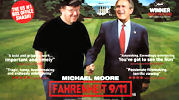 The deaths of about 3000 United States citizens and residents, however individually tragic, pale into insignificance against the hundreds of thousands, and possibly millions of deaths, resulting from continuous wars the United States has launched, using 9-11 as a pretext. The 2021 western-media commemoration hype, solely deploring the 2001 New York events, seems obscenely disproportionate, when considering the far greater human costs in ongoing economic, ecological, and political destruction, and looting of resources, in Central Asia and the Middle East, set in motion by a purported hunt for Osama-bin-Laden.
The deaths of about 3000 United States citizens and residents, however individually tragic, pale into insignificance against the hundreds of thousands, and possibly millions of deaths, resulting from continuous wars the United States has launched, using 9-11 as a pretext. The 2021 western-media commemoration hype, solely deploring the 2001 New York events, seems obscenely disproportionate, when considering the far greater human costs in ongoing economic, ecological, and political destruction, and looting of resources, in Central Asia and the Middle East, set in motion by a purported hunt for Osama-bin-Laden. 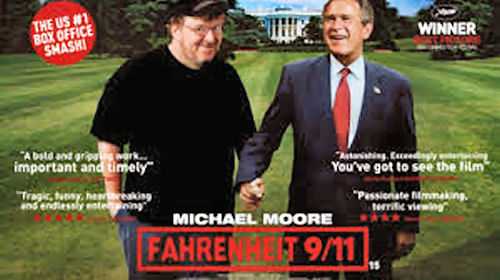
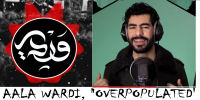
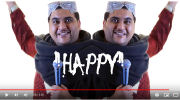 Here is an Arabic song about overpopulation (lyrics and translation provided). On the same page, by the same artist, just above the original Arab lyrics for "Overpopulated," is an hilarious rendition of Pharrell Williams's song, "Happy." Aala Wardi, Iranian-born, Saudi-raised, and currently said to be living in Riyadh, provides completely new forms of Arab music. He studied music in Jordan and is a sound engineer as well as a performer and creator. He performs, produces, and presents all this music, much of which is very funny, as well as brilliant. He sings in gobsmackingly accentless Arabic, English, French, Urdu, Hindi and
Here is an Arabic song about overpopulation (lyrics and translation provided). On the same page, by the same artist, just above the original Arab lyrics for "Overpopulated," is an hilarious rendition of Pharrell Williams's song, "Happy." Aala Wardi, Iranian-born, Saudi-raised, and currently said to be living in Riyadh, provides completely new forms of Arab music. He studied music in Jordan and is a sound engineer as well as a performer and creator. He performs, produces, and presents all this music, much of which is very funny, as well as brilliant. He sings in gobsmackingly accentless Arabic, English, French, Urdu, Hindi and 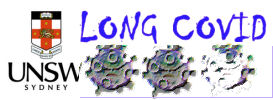 An international taskforce created by a UNSW Science psychology researcher has recommended a set of neurocognitive and mental health questionnaires to harmonise the assessment of patients with long COVID.
An international taskforce created by a UNSW Science psychology researcher has recommended a set of neurocognitive and mental health questionnaires to harmonise the assessment of patients with long COVID.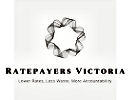

 I was talking to someone on the phone about something I had to do. She suggested that I go up and stay in The Lodge with Scott Morrison and work on it with him. She checked with "Scott" and got back to me immediately, that it was OK.
I was talking to someone on the phone about something I had to do. She suggested that I go up and stay in The Lodge with Scott Morrison and work on it with him. She checked with "Scott" and got back to me immediately, that it was OK.
 "Today, with little warning and a lot of malice, the Liberal and Labor parties teamed up to pass legislation requiring minor parties to prove they have over 1500 members within the next three months - up from 500 - before the 2022 federal election." (William Bourke, President
"Today, with little warning and a lot of malice, the Liberal and Labor parties teamed up to pass legislation requiring minor parties to prove they have over 1500 members within the next three months - up from 500 - before the 2022 federal election." (William Bourke, President 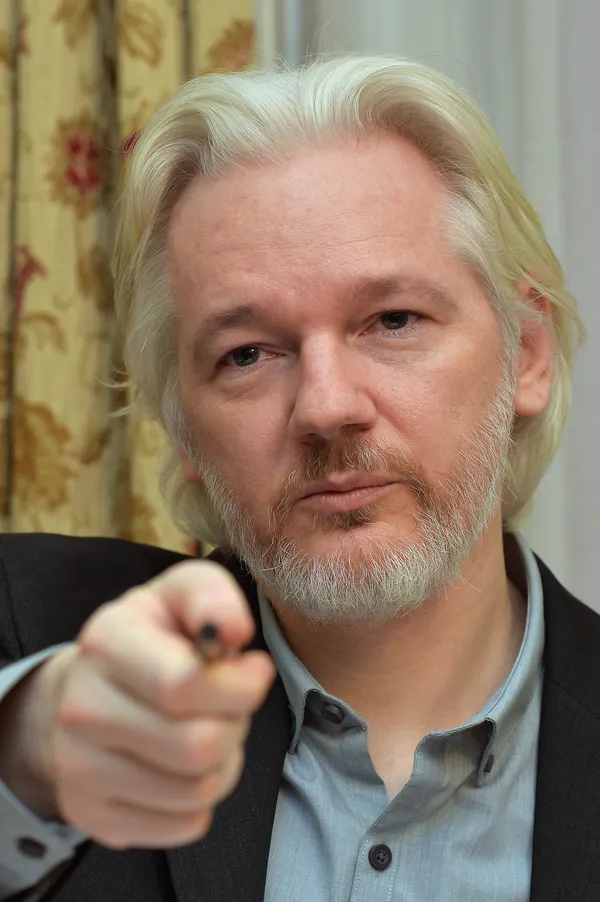
 In this extraordinary interview, revealing more political abuse of the British legal system, Chris Hedges talks to Craig Murray, the former British ambassador to Uzbekistan, who was removed from his post after he made public the widespread use of torture by the Uzbek government and the CIA.
In this extraordinary interview, revealing more political abuse of the British legal system, Chris Hedges talks to Craig Murray, the former British ambassador to Uzbekistan, who was removed from his post after he made public the widespread use of torture by the Uzbek government and the CIA. It's been a long time since I have seen my friends and family, who live interstate in Australia. There have been unprecedented border closures and, even when we could travel, it's been too risky, because we could pay dearly for our trip with two weeks isolation on our return. No doubt, due to the current COVID-19 situation, there will be those we will not see again. Some grandparents may never see their interstate grandchildren. Many special occasions will be missed.
It's been a long time since I have seen my friends and family, who live interstate in Australia. There have been unprecedented border closures and, even when we could travel, it's been too risky, because we could pay dearly for our trip with two weeks isolation on our return. No doubt, due to the current COVID-19 situation, there will be those we will not see again. Some grandparents may never see their interstate grandchildren. Many special occasions will be missed.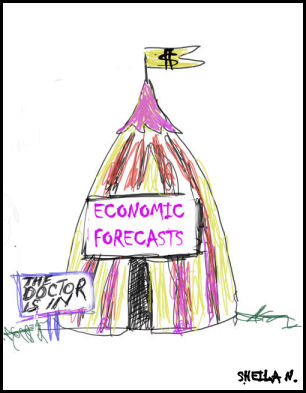
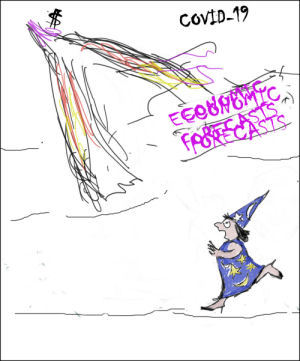
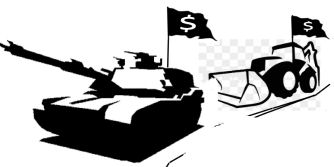
 "In Victoria, this practice has started with Banyule Council's deal with Woolworths, who approached council to purchase an additional 828sqm of public land that wasn't on the market.
"In Victoria, this practice has started with Banyule Council's deal with Woolworths, who approached council to purchase an additional 828sqm of public land that wasn't on the market.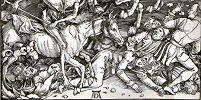 The mainstream media has given a great deal of coverage to the COVID-19 pandemic - as it should - but interwoven among the stories on poor vaccination rates, conspiracy theories, and the people ignoring quarantine, there is a consistent run of horror stories on the impact of lockdowns, often with a message that we must get back to the pre pandemic "normal" life. This is understandable, businesses are going broke, unemployment is rising, domestic violence and mental illness are increasing. It is an unpleasant situation, but returning to the old norm is not a solution. This, after all, was the lifestyle that created human movement into wilderness areas, bringing us into contact with pathogens that we have little resistance to combat.
The mainstream media has given a great deal of coverage to the COVID-19 pandemic - as it should - but interwoven among the stories on poor vaccination rates, conspiracy theories, and the people ignoring quarantine, there is a consistent run of horror stories on the impact of lockdowns, often with a message that we must get back to the pre pandemic "normal" life. This is understandable, businesses are going broke, unemployment is rising, domestic violence and mental illness are increasing. It is an unpleasant situation, but returning to the old norm is not a solution. This, after all, was the lifestyle that created human movement into wilderness areas, bringing us into contact with pathogens that we have little resistance to combat.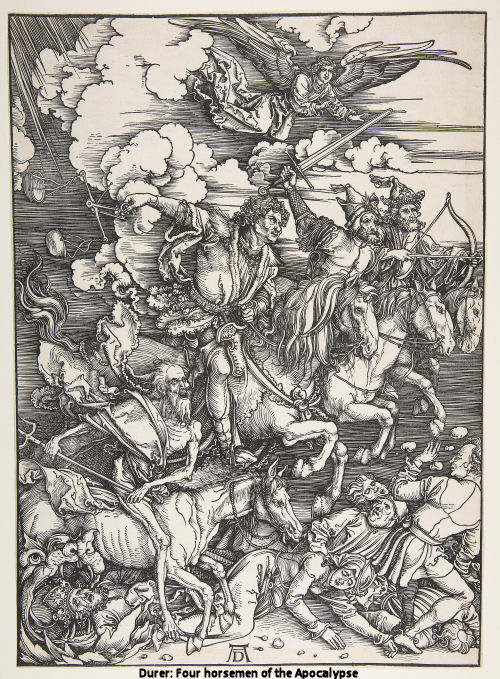
 I knew it was my lucky day. Returning home from a walk this afternoon I removed the clutter of advertising material from my letter box. A rather subdued, tasteful card caught my eye as I shuffled through the assortment of catalogues and lost kitten notices. I noted the heading on a sage green coloured card - "Halcyon Close" - featuring a double storey, apparently newly built, modern styled townhouse complex. The verso showed the interior and outdoor living areas of one of these hallowed retreats, the living room suffused with light through floor- to -ceiling windows, onto neutral-coloured walls and soft furnishings, the outdoor living area dappled with sunlight, through a hint of greenery, on a neutral-tiled patio and beige outdoor furniture.
I knew it was my lucky day. Returning home from a walk this afternoon I removed the clutter of advertising material from my letter box. A rather subdued, tasteful card caught my eye as I shuffled through the assortment of catalogues and lost kitten notices. I noted the heading on a sage green coloured card - "Halcyon Close" - featuring a double storey, apparently newly built, modern styled townhouse complex. The verso showed the interior and outdoor living areas of one of these hallowed retreats, the living room suffused with light through floor- to -ceiling windows, onto neutral-coloured walls and soft furnishings, the outdoor living area dappled with sunlight, through a hint of greenery, on a neutral-tiled patio and beige outdoor furniture. 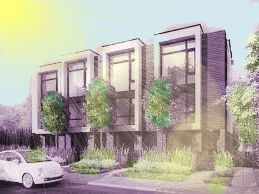
 It's interesting how so many sentences and ideas now trail off into the inevitable denouement "… but that didn't happen because of Covid"…"We had to change plans because of Covid." It's as though Sir Humphrey Covid is some VIP, for whom doors must be opened and the seas must part. Or, as though Covid is an unexpected first born baby to a couple in their 40s whose lives are now utterly transformed. "We couldn't celebrate Henry's birthday this year because of … Baby Covid." "Covid" could be anything or anyone terribly important - one's mother in law arriving from Europe or a visitation from a long dead relative. All must stop … for Covid!
It's interesting how so many sentences and ideas now trail off into the inevitable denouement "… but that didn't happen because of Covid"…"We had to change plans because of Covid." It's as though Sir Humphrey Covid is some VIP, for whom doors must be opened and the seas must part. Or, as though Covid is an unexpected first born baby to a couple in their 40s whose lives are now utterly transformed. "We couldn't celebrate Henry's birthday this year because of … Baby Covid." "Covid" could be anything or anyone terribly important - one's mother in law arriving from Europe or a visitation from a long dead relative. All must stop … for Covid!
 Sustainable Population Australia (SPA) believes there is nothing to fear from the downward projection of population size in the Inter-Generational Report (IGR) from 40 million to 38.8 million by 2061. National President Jenny Goldie says what is to be feared are the environmental, social and economic cost of adding another 13 million people to the population.
Sustainable Population Australia (SPA) believes there is nothing to fear from the downward projection of population size in the Inter-Generational Report (IGR) from 40 million to 38.8 million by 2061. National President Jenny Goldie says what is to be feared are the environmental, social and economic cost of adding another 13 million people to the population.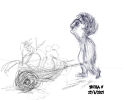 The new Intergenerational Report (IGR) has projected Covid will make Australia’s population smaller and older than earlier predicted, but that need not be a problem if we can take real steps to end the blight of ageism, according to the EveryAGE Counts campaign.
The new Intergenerational Report (IGR) has projected Covid will make Australia’s population smaller and older than earlier predicted, but that need not be a problem if we can take real steps to end the blight of ageism, according to the EveryAGE Counts campaign. 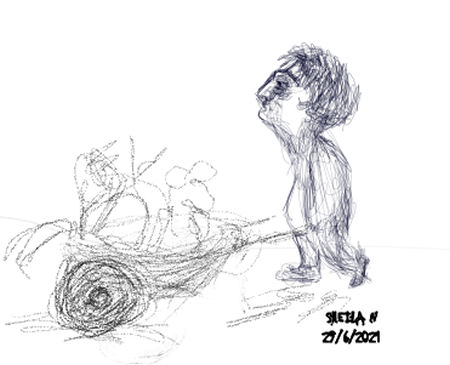
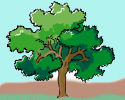 Walk in St Kilda Rd & Environs presents Planet Ark National Tree Day Nature Care Event 2021: "Lighting and Green Spaces - an Expert Panel Presentation on new research and challenges," Sunday 27 June 2021, 2.30pm – 4.30pm, Prahran Mechanics Institute, 39 St Edmonds Rd, Prahran VIC 3181
Walk in St Kilda Rd & Environs presents Planet Ark National Tree Day Nature Care Event 2021: "Lighting and Green Spaces - an Expert Panel Presentation on new research and challenges," Sunday 27 June 2021, 2.30pm – 4.30pm, Prahran Mechanics Institute, 39 St Edmonds Rd, Prahran VIC 3181 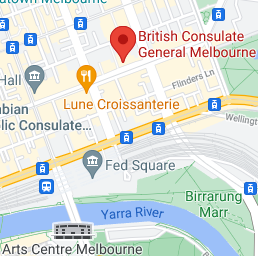
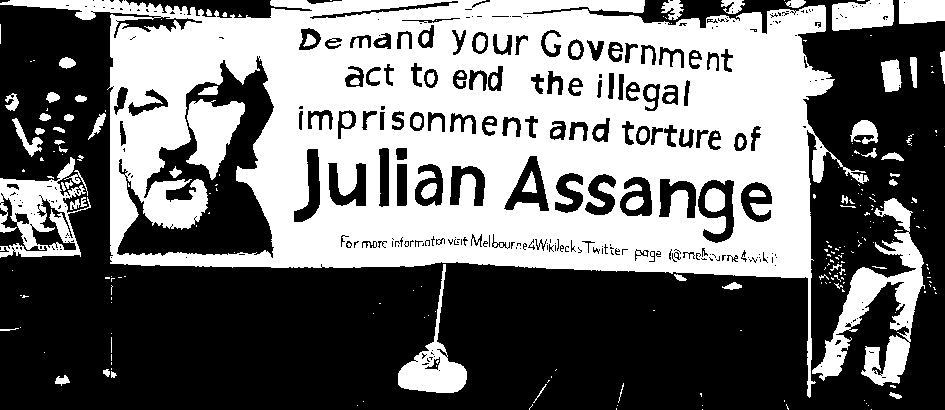
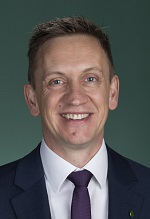 New important initiative. Labor MP Julian Hill's private motion may finally force Australian parliamentarians to take sides for or against Julian Assange and lead to his being freed. Whether this motion is heard and debated depends on whether the House of Representatives Selection Committee allows it. We urge Australians to contact their local members and each other to get behind Mr Hill's motion, which calls for Assange to be set free from his illegal imprisonment, noting that he is the recipient of many awards for journalism, detained for political reasons through an abuse of power. If the motion is allowed through, then both sides of the house will be obliged to vote or abstain, and the Australian public will finally see what they are made of.
New important initiative. Labor MP Julian Hill's private motion may finally force Australian parliamentarians to take sides for or against Julian Assange and lead to his being freed. Whether this motion is heard and debated depends on whether the House of Representatives Selection Committee allows it. We urge Australians to contact their local members and each other to get behind Mr Hill's motion, which calls for Assange to be set free from his illegal imprisonment, noting that he is the recipient of many awards for journalism, detained for political reasons through an abuse of power. If the motion is allowed through, then both sides of the house will be obliged to vote or abstain, and the Australian public will finally see what they are made of.

 According to the recently publicly released summary of offending, it is still unknown what offences Mr Johns pleaded guilty to, why he was given a term of imprisonment, exactly why the proceedings were conducted entirely in camera, and why even the ACT Attorney-General was never made aware that he was imprisoned in a correctional facility which the Attorney ultimately oversees,” Dr Brasch QC said.
According to the recently publicly released summary of offending, it is still unknown what offences Mr Johns pleaded guilty to, why he was given a term of imprisonment, exactly why the proceedings were conducted entirely in camera, and why even the ACT Attorney-General was never made aware that he was imprisoned in a correctional facility which the Attorney ultimately oversees,” Dr Brasch QC said.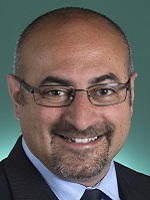
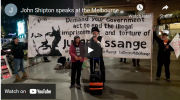
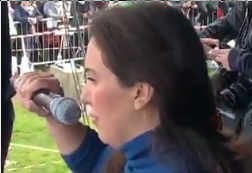
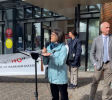 The video inside the article is a record of the third ARAG (Ashburton Residents Action Group) public rally over six years in the residential battle to protect Markham Estate and the surrounding streets and environment.
The video inside the article is a record of the third ARAG (Ashburton Residents Action Group) public rally over six years in the residential battle to protect Markham Estate and the surrounding streets and environment.
Recent comments